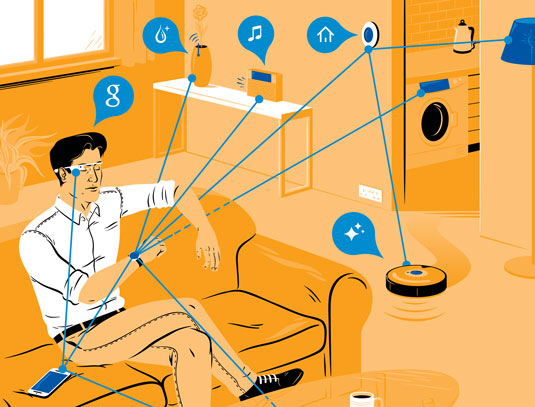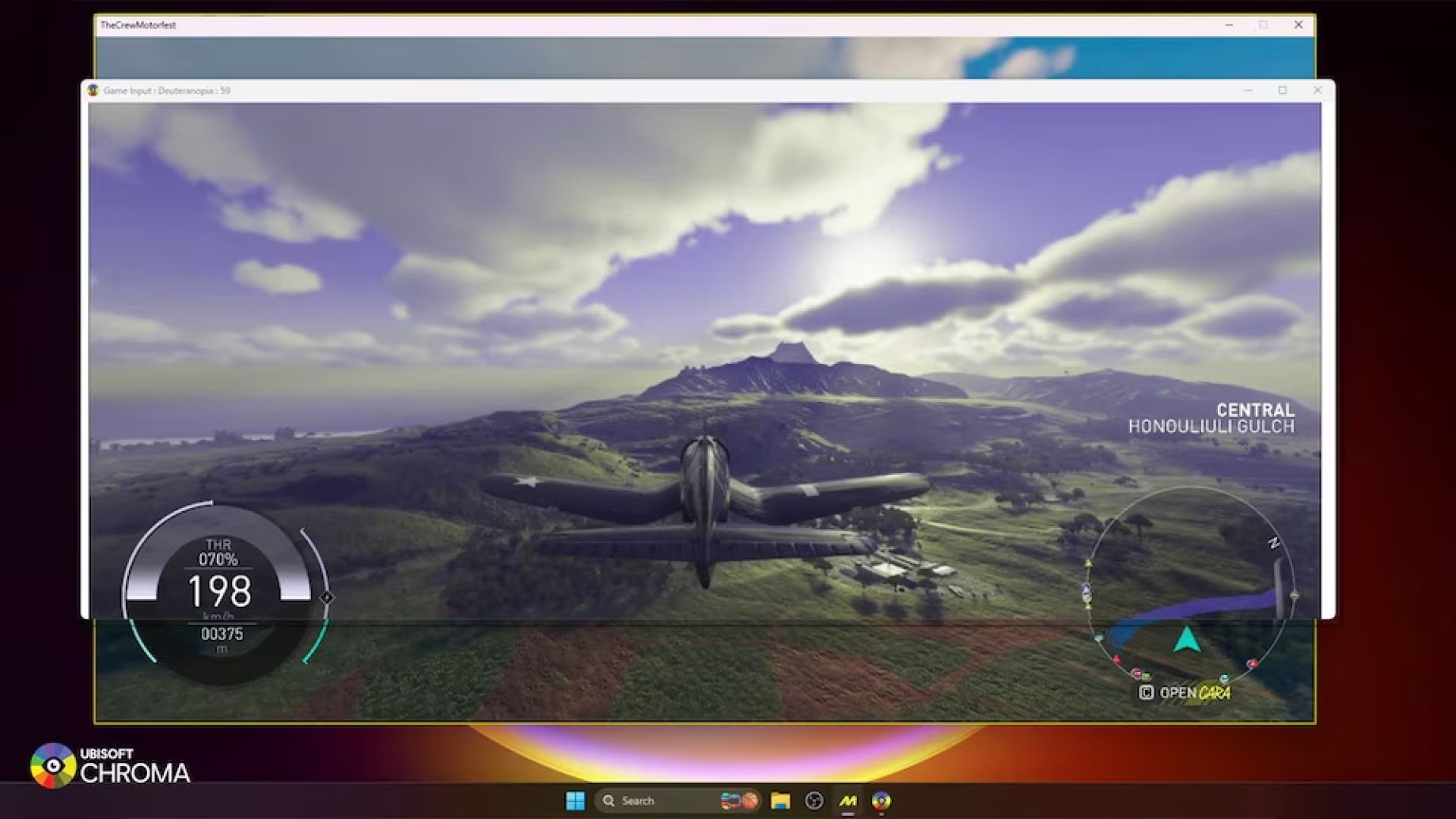3 ways touch is going to change design forever
Imagine a world filled with touchscreens, and where passwords are unheard of. It’s not as far off as you might think.
What do the next 9,000 days have in store for the web? Peter Smart will be exploring the future of the web, and how to prepare for it now, at Generate New York on 28 April. Can't get to the east coast? There are Generate conferences in San Francisco and London this year too!
The internet as we know it is less than 9,000 days old. Yet, in that time it has revolutionised the way the world lives, works and plays. In a generation, we've seen the world mapped in amazing detail; real time, face-to-face communication made possible with people on the other side of the planet; and the vastness of human knowledge retrievable in a fraction of a second. But this is nothing compared to what is about to come.
Scott Cook, the founder of Intuit, claims "we're still in the first minutes of the first day of the internet revolution" – and with the technological breakthroughs happening at the frontiers of our industry, it's hard to disagree.
No one can predict the future, but to explore the future technologies set to revolutionise our industry tomorrow, it is possible to examine leading research and cutting-edge developments happening at the forefront of our industry today.
01. The future is ... tangible

Imagine being able to touch the web. The human body is incredibly adapted for touch. Millions of touch receptors cover our skin, allowing us to better navigate our physical world. Yet tactile sensation in the digital world is almost non-existent. However, today major tech firms including Apple, Samsung and Disney are developing haptics for the web: the ability to pick up our devices and not only see, but feel what we are looking at.
Electrostatic Vibration is a new technology that can manipulate the precise amount of friction a finger feels when travelling across a touch surface. By increasing and decreasing this friction, it is possible to dynamically recreate the feeling of bumps, ridges, edges and texture. The implications of this type of technology suggest incredible possibilities for the web.
Millions of touch receptors cover our skin, allowing us to better navigate our physical world
A tactile web would revolutionise shopping experiences. Studies that show that touch has a significant, unconscious grip over decision-making processes. When I am able to feel how soft the coat I am looking to buy is, how will that alter the amount I'm willing to pay for it?
There could also be implications for education. Studies show it's not just how we think, but what we do while we think that impacts how we absorb information. How are haptic technologies set to offer amazing new possibilities for learning via digital mediums?

Finally, imagine Skype. Michelangelo said, "To touch can be to give life." A tangible web will allow us to be on a face-to-face call with a loved one on the other side of the world, and be able to touch them.
The implications here for virtual human communication are enormous. This is why even the advances that we see today, like sending a touch to someone through the Apple Watch, point to an amazing future tomorrow.
02. The Future is ... adaptive
The Internet of Things has captured the imagination of the media, manufacturers and business around the world and, according to Cisco, is set to become a $19 trillion global opportunity over the next decade. Although recent reports have focused on mundane manifestations like the Internet Fridge and smart-controlled cooker, the real implications of the Internet of Things are far-reaching and set to revolutionise the way the web adapts to us.
Internet-connected devices that can independently communicate are set to number 26 billion within six years, according to Gartner. Today, these devices are already jam-packed full of sensors and receivers that can create completely new, seamless experiences.
Sensors already adorn our homes (smart bulbs that adjust to our presence in a room; thermostats that know our preferences) and our bodies.
Imagine never having to come up with a password again
Our extremities are playing host to an increasing plethora of sensors including heart rate monitors, fingerprint readers, location sensors and gyroscopes. The advance in the quality and number of these sensors today is cultivating a web that will adapt to our preferences tomorrow.
Imagine never having to come up with a password again. Passwords are an inherently terrible security system. They are guessable and as recent spate of celebrities will tell you, eminently hackable. However, from fingerprint readers to finger-vein scanners, today's enhanced personal security systems are the precursors of tomorrow's adaptive biometric security.
Consider Nymi, which authenticates the wearer using their heart rhythm, so that when you pick up your phone, it automatically recognises it's you and unlocks. The shows of our childhood – Knight Rider, The Jetsons and, more recently, the film Her – have consistently fuelled the 20th century fantasy of artificial intelligence.
Personal assistants that are smart, useful and personal. An adaptive web makes experiences like KITT and Samantha increasingly possible. Connected devices will allow ‘Smart Pins' to follow us from device to device. As digital bubbles collecting all of your data, your Smart Pin securely links all your vital information to the web. So when I want to buy that T-Shirt, my Smart Pin authenticates me and purchases the item in a single tap.
And because connected devices can communicate, my avatar can follow me into the physical world. For instance, if I see a cool gadget on a billboard at Waterloo train station, and approach to find out more, my Smart Pin appears on the sign and asks me if I'd like to buy one. Again: one tap and I'm done.
03. The future is ... invisible
If Google chairman Eric Schmidt and his contemporaries are to be believed, the future of the internet will feel "... seamless. It will just be there. The web will be everything, and it will be nothing. It will be like electricity." When it comes to the web, considering its raw form of fluid 1s and 0s, newfound technologies are set to fulfil the prophecies of Schmidt and co.
A quick search for "future home concepts" will return a flood of visionary suppositions of walls, tables and windows that morph into web-connected touchscreens. However, for Chris Harrison and fellow researchers from Microsoft, this is becoming a reality.
OmniTouch is a "...wearable system that enables graphical, interactive, multitouch input on arbitrary, everyday surfaces." In other words, a wearable projector that can turn any surface into a display. Although a prototype, this technology shows the latent potential for a web that breaks the confines of our devices.
Perhaps most exciting, companies including Google are purportedly looking well beyond Glass and ambient displays. Smart contact lenses have received funded development.
The ability to take the web and implant it into our eyes will revolutionise our understanding of the role of the web in our physical world. Invisible, yet visible simply by opening our eyes. For a scary look at this near reality, watch Eran May-raz and Daniel Lazo's concept video Sight.
Looking forward
The web is just 1s and 0s; what we do with it is up to us. To create the novel experiences of tomorrow, the internet needs people like you: polymaths able to experiment across disciplines to create new experiences that capitalise on the innovations happening at the forefront of our industry today.
Whether we use sleight of hand to make the web feel invisible, bend it to create touchable experiences or morph it to make it adapt to us at all times, the next 9,000 days of the web are in our hands.
Watch Peter Smart's talk about the future of the web from last year's Generate San Francisco, and join him for another instalment of his ground-breaking series at Generate New York on 28 April.
This article appeared first in issue 261 of net magazine; subscribe today!

Thank you for reading 5 articles this month* Join now for unlimited access
Enjoy your first month for just £1 / $1 / €1
*Read 5 free articles per month without a subscription

Join now for unlimited access
Try first month for just £1 / $1 / €1
Get the Creative Bloq Newsletter
Daily design news, reviews, how-tos and more, as picked by the editors.
